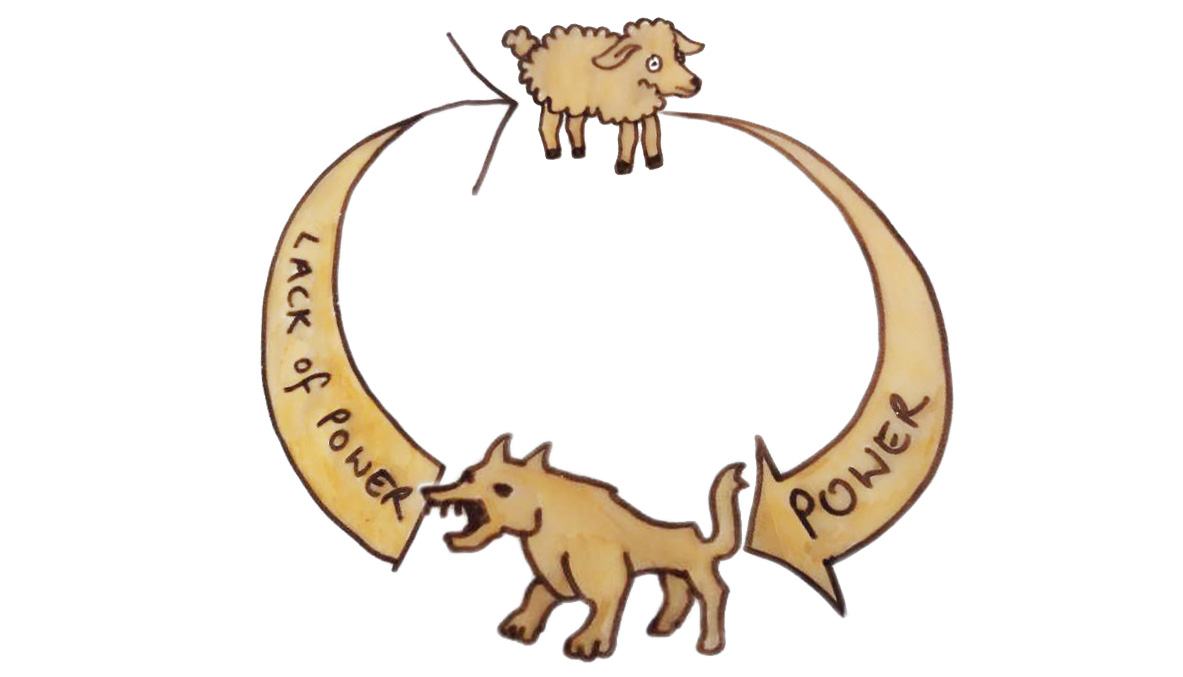What power does to people
ten effects having relative power has on us ∽
a little insight into our own psychology

by Katy Elphinstone, July 2025
- Having relative power inhibits your empathy for others.
- It leads to more confident behaviour.
- It also leads to more aggressive behaviour.
- It leads to making more optimistic predictions. And greater reactions of rage, if those predictions do not materialize.
- It induces a (usually subliminal) presumption of superiority over others.
- It increases selfishness and egotism.
- It triggers a desire to possess greater relative power, and to gain even more for yourself.
- It leads to a greater reliance on heuristics (generalizations without seeking verification or more data), stereotyping, and prior beliefs.
- Possessing relative power increases reliance on your own emotions, while decreasing your reliance in others' perceptions and communications.
- It leads to an inability to perspective-take, leaving you out of sync with others' experience and reality.
-
Reference for the ten points: Pomeroy, C., Goodhart, A., Herrmann, R., Kertzer, J., Mueller, J., Peterson, D., Rathbun, B., Schweller, R., Verdier, D. and Wendt, A. (2021). The Psychology of Power: The First Image Reversed and International Security, by Caleb Pomeroy, Ohio State University
- In fact, having relative priviledge and power over many, many generations can lead to physical differences, as well! I had a brief and humorous conversation with my son and daughter where they were helping themselves to dinner and he said to her, "Well, I need more than you because I'm bigger," and she answered by kick-boxing him, and I said, "Well, who knows, maybe the reason males are bigger is also exactly because they always had the biggest portions!" Later that week, I was reading Thorstein Veblen's wonderful book, 'The Theory of the Leisure Class,' only to come across the information that in tribes where women and men performed tasks and roles equally and interchangeably (i.e. the work did not depend on their sex, with the obvious exception of childbirth and breastfeeding), the physical stature and musculature of the males and females of the tribe were extremely similar to one another.
- About intuition: Those with less power in society, such as women or Black people, have – both historically and continuing on today – had to pay a great deal of attention to the moods, likes, dislikes, etc., of those possessing more power than them. Especially, obviously, of those who had direct power over them, their loved ones, and their living situations. You could call it (the intuition) a question of survival. This article talks more about it: What’s Behind Women’s Intuition? | Psychology Today.
What does having power over others do to us humans? The following are ten ways in which power changes us:1
To sum up, gaining more power makes you want more power. It also equips you with the tools to gain it, whether those are psychological and behavioural, or (perhaps more gradually, over generations) in terms of influence, position, and infrastructure.2
Having less power, on the other hand, has the effect of making you more careful, more sensitive and intuitive,3 more anxious, less confident – and far less able, equipped, and positioned, to advocate for yourself. And also, of course, much less likely to demand or grasp power, should the opportunity present itself.

In other words, power creates wolves while lack of power creates sheep.
I find it interesting how those who lack power within society may be looked at scornfully – or else patronizingly, or perhaps 'affectionately' – and told it's their fault they do. With phrases such as, "You bring it on yourself," "You mustn't be so sensitive," and "You know, you create your own reality!" Even though actually such shifts of power, and therefore temperament, usually occur over generations and on a societal level. You – quite literally – don't have it in you! But also aren't in much of a position to protest when you're held responsible for the situation.
This 'power vs powerlessness' dynamic becomes exponential, when not checked. Especially as gradually, over millenia, it's supported by infrastructure, laws, habits that are so habitual we take them to be "natural", and by our own beliefs and assumptions that we take to be just the background. We play the game without even knowing we are playing it.
There is hope though! The vortex – which is ultimately an extremely dangerous one, e.g. when projected forward in time – can be gradually slowed, even reversed, by application of human forces such as empathy, self-compassion, personal mindfulness, social awareness, and (ultimately) social reform.
❤️